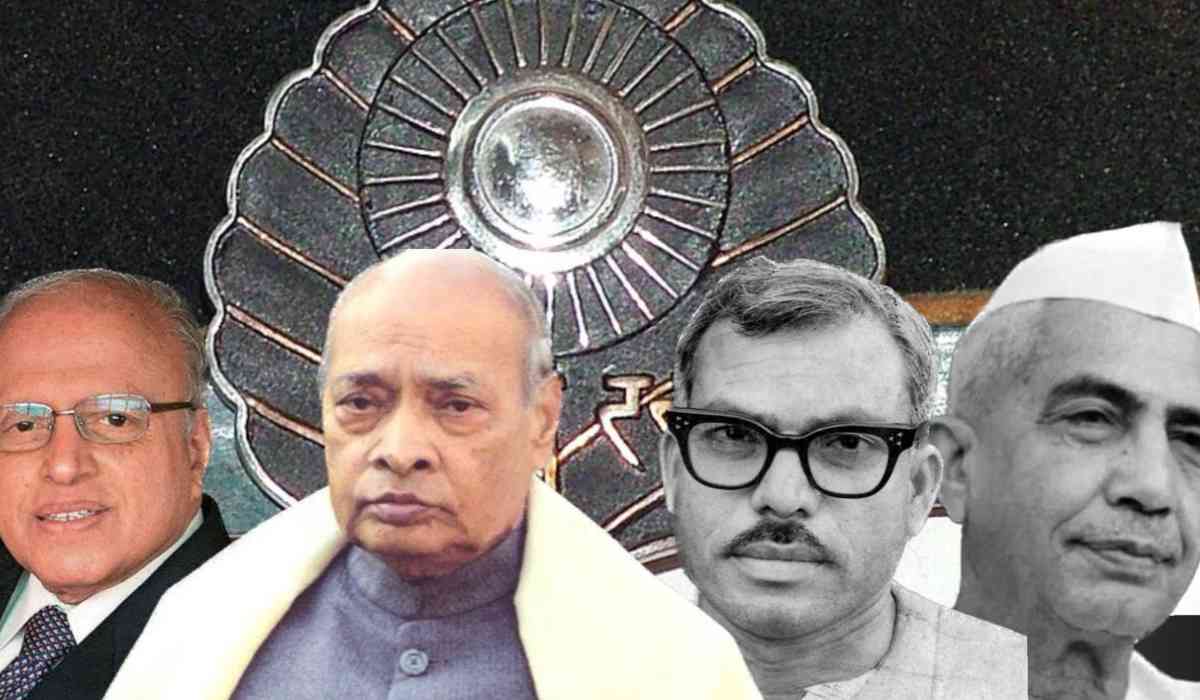In a brief ceremony at the Rashtrapati Bhavan, President Droupadi Murmu conferred posthumously Bharat Ratna to P.V. Narasimha Rao, Chaudhary Charan Singh, Karpoori Thakur and M.S Swaminatham.
The ceremony was attended by many dignitaries including Vice President Jagdeep Dhankhar and Prime Minister Narendra Modi
Earlier, The Government of India announced the Bharat Ratna for Shri P V Narasimha Rao, Shri Chaudhary Charan Singh, Dr M S Swaminathan, Karpoori Thakur and LK Advani.
BJP leader LK Advani, the fifth awardee, was unable to attend the ceremony due to his illness. On Sunday, President Murmu will visit senior BJP leader LK Advani at home and present him with the prestigious award.
Bharat Ratna
‘The Jewel of India’, The Bharat Ratna, highest civilian honour in the nation, is bestowed for outstanding contributions across various domains such as science, arts, literature, and exemplary public service.
Established on January 2, 1954, by former President Rajendra Prasad, it can be awarded posthumously, with seven such awards granted since its inception. Sir C.V. Raman, and Chakravarti Rajagopalachari were the first to get conferred by Bharat Ratna in 1954. Recipients are presented with a Sanad, akin to a certificate, bearing the signature of the President of India, along with a medallion shaped like a peepal leaf.
In 2024, Five Bharat Ratna are been awarded, which is the highest number of Bharat Ratna awards given in one year in history.
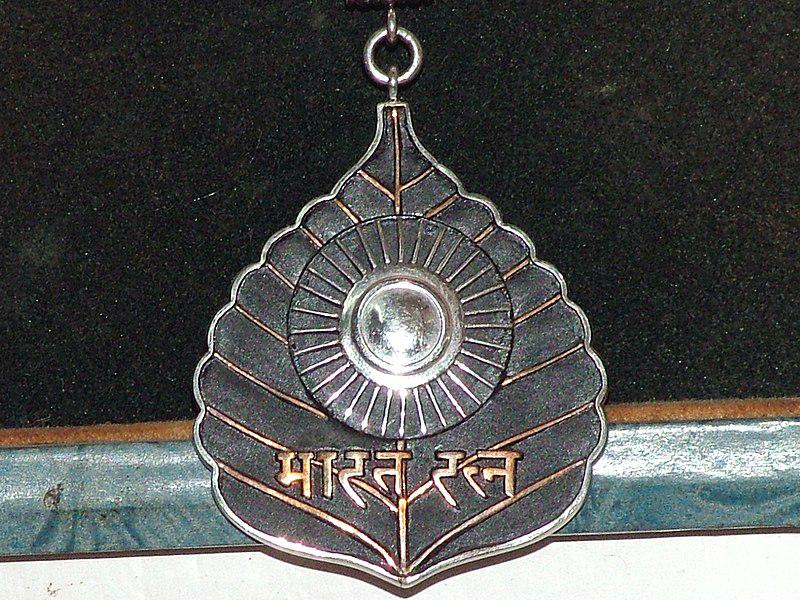
Former PM Narsimha Rao
The Bharat Ratna was received by PV Prabhakar Rao, son of former PM PV Narasimha Rao
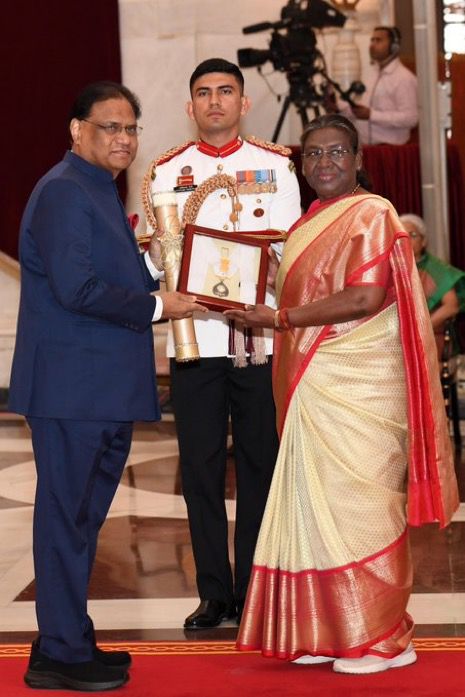
Born in Karimnagar, Telangana, on June 28, 1921, Pamulaparthi Venkata Narasimha Rao was a well-known member of the Congress leadership in the then-undivided state of Andhra Pradesh. He served in the Andhra Pradesh government in a number of ministerial capacities, including those related to law, information, health, and education. He also served as Chief Minister of Andhra Pradesh from 1971 to 1973 and as General Secretary of the All India Congress Committee from 1975 to 1976. He earned recognition for his political acumen, earning him the title "Chanakya of Indian politics." He became India's 9th Prime Minister in 1991. During his tenure as Prime Minister from 1991 to 1996, Rao spearheaded significant economic reforms, including globalization, liberalization, and privatization, to address India's foreign reserves crisis.
Former PM Chaudhary Charan Singh.
Former PM Chaudhary Charan Singh's Bharat Ratna was recieved by his grandson RLD chief Jayant Singh.
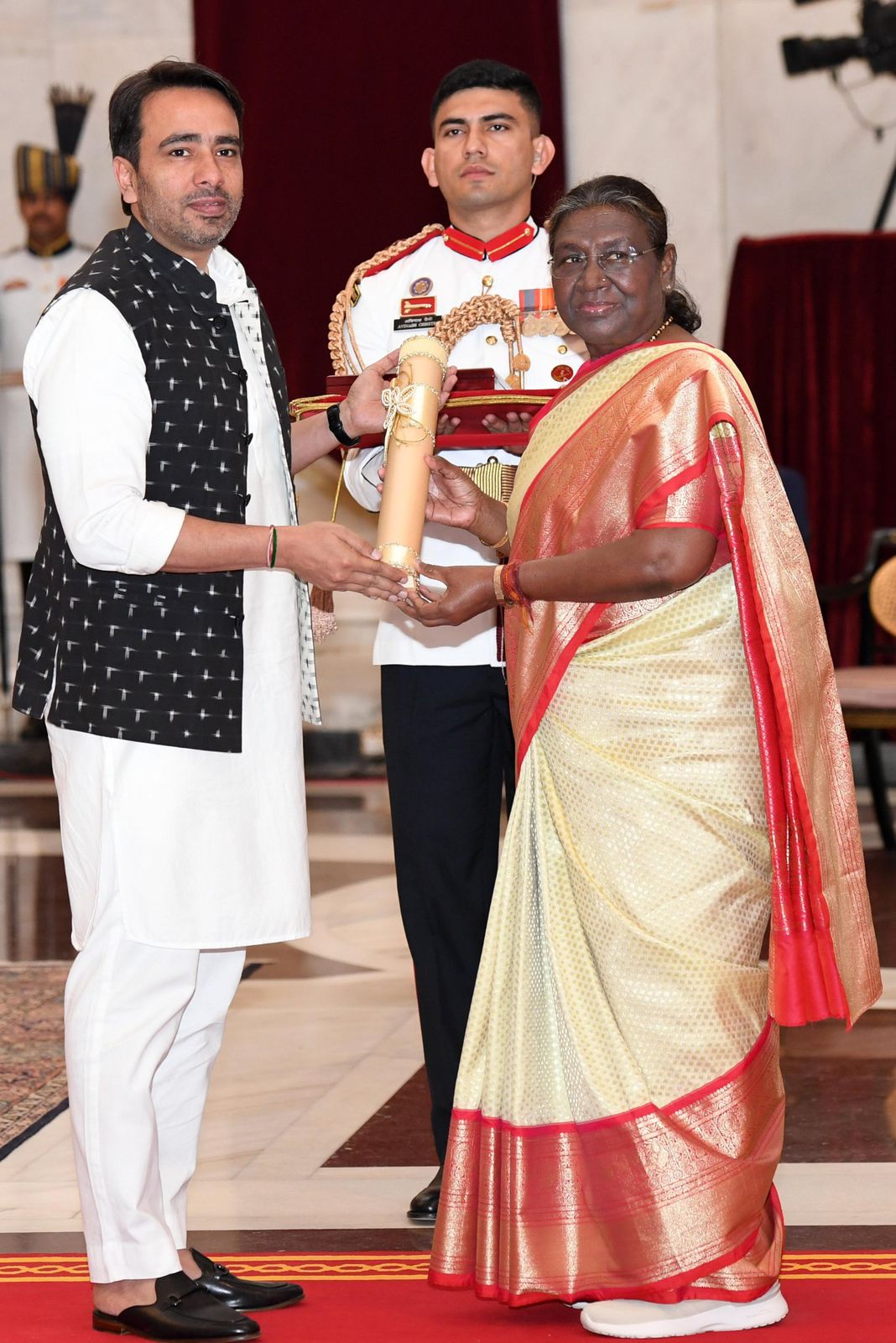
In the Meerut district of Uttar Pradesh's Noorpur, Chaudhary Charan Singh was born in 1902 into a family of middle-class peasants. He imitated his political career with the Congress, but in 1967 he broke away. As the head of the Sanyukta Vidhayak Dal coalition, he took on the position of Chief Minister of Uttar Pradesh for the first time. He placed a strong emphasis on social justice during his brief time as prime minister, from July 28, 1979, to January 14, 1980. He was also instrumental in getting land reforms passed in Uttar Pradesh. Over the course of his career, Charan Singh held a number of important roles. Later on, he was appointed Cabinet Minister for Uttar Pradesh, where he was in charge of the departments of agriculture, revenue, justice, and information. Singh was the author of several books and pamphlets, including ‘Abolition of Zamindari’, ‘Co-operative Farming X-rayed’, ‘India’s Poverty and its Solution’, ‘Peasant Proprietorship or Land to the Workers’ and ‘Prevention of Division of Holdings Below a Certain Minimum’.
Former CM of Bihar Karpoori Thakur
The Bharat Ratna award conferred to Karpoori Thakur, was received by son Ram Nath Thakur.
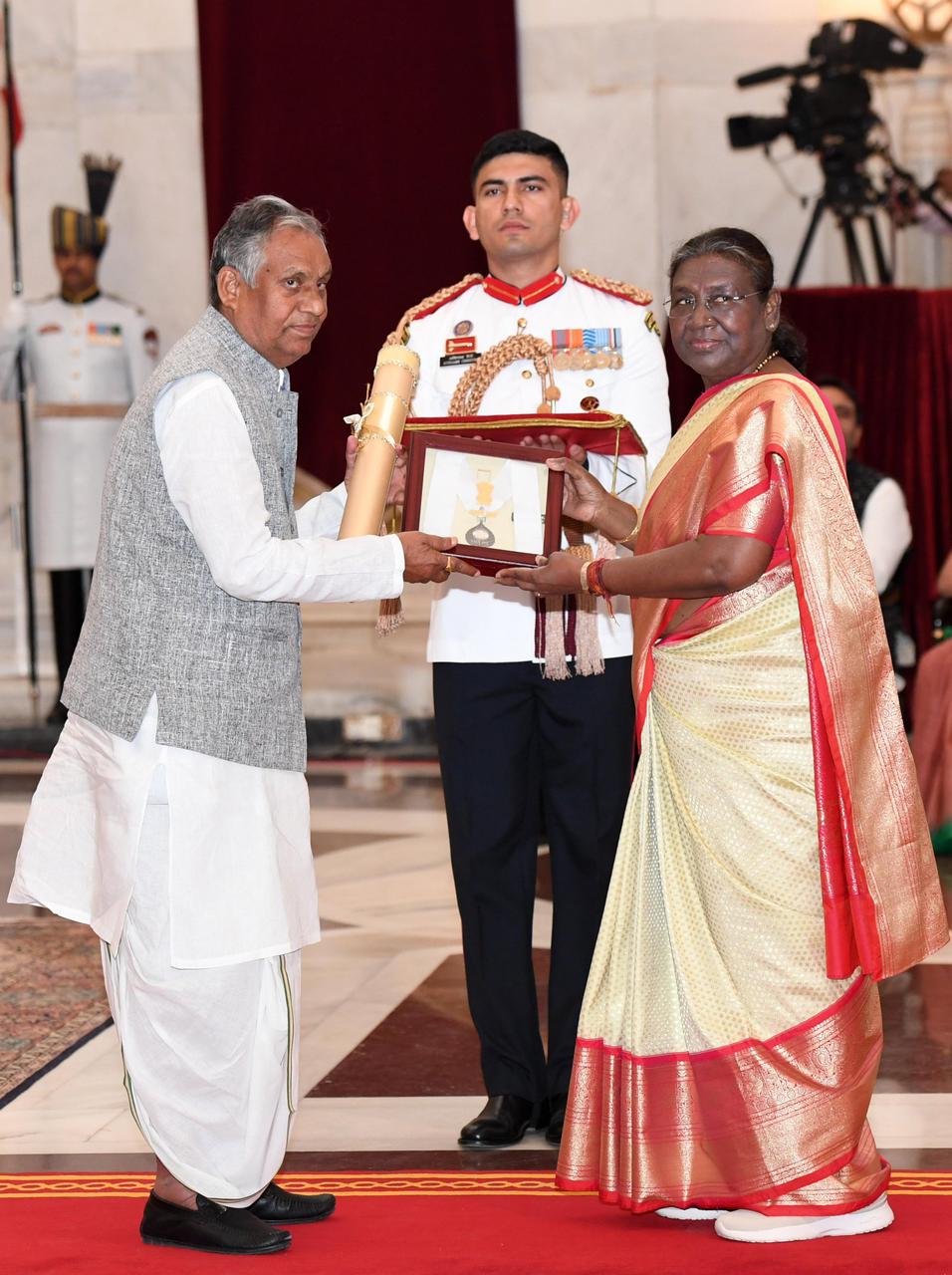
Karpoori Thakur was born in 1924 into the Nai Samaj, one of the most marginalised groups in Indian society. His political career was distinguished by his dedication for the upliftment of the underprivileged segments of society, making him an exceptional leader. He was referred to as the people's leader, or 'jannayak,' with affection. From December 1970 to June 1971 and from December 1977 to April 1979, he led Bihar as its chief minister. He played a significant role in the fight against inequality and social discrimination.
Agricultural Scientist M S Swaminathan
President Murmu conferred the Bharat Ratna award to agriculture scientist M S Swaminathan posthumously, and was received by his daughter Nitya Rao.
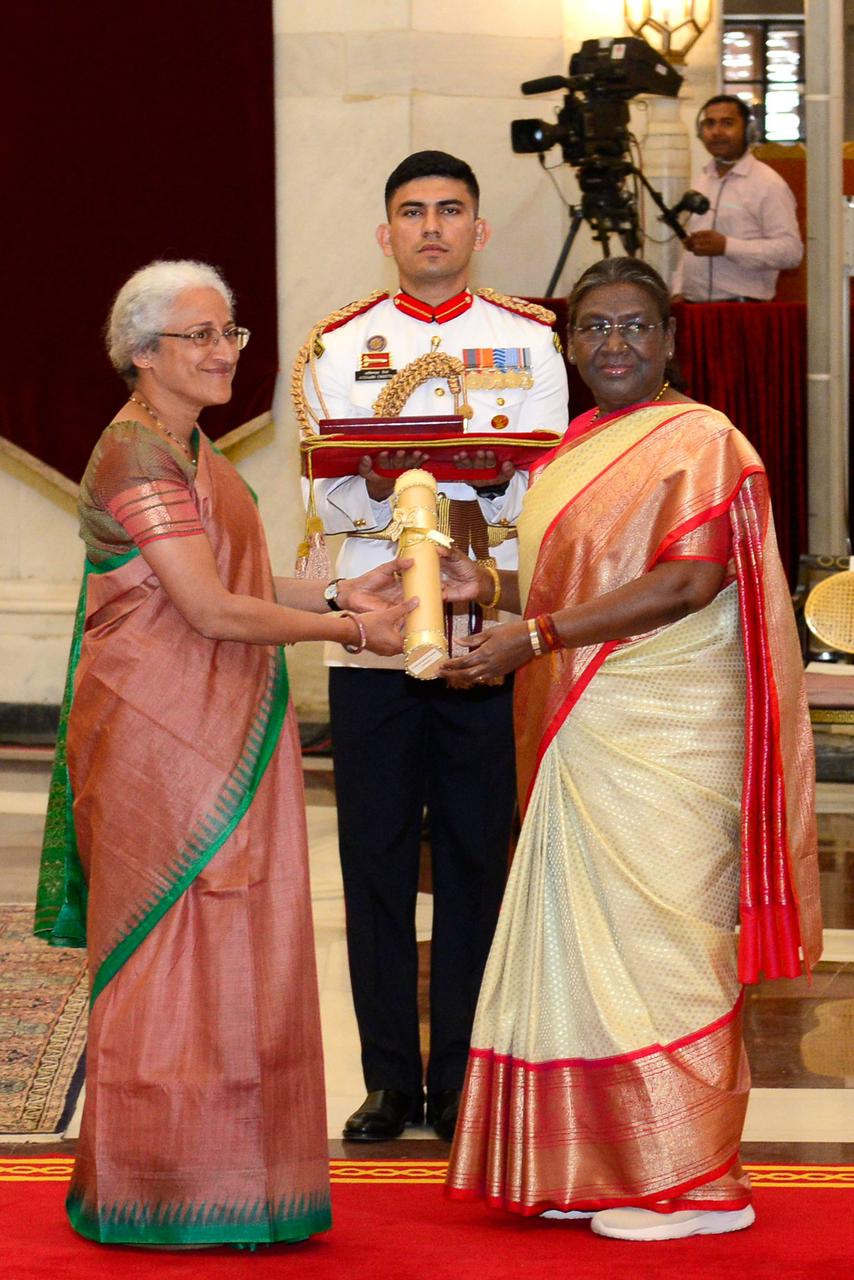
‘Father of Green Revolution’, M.S. Swaminathan was an agronomist, agricultural scientist, plant geneticist, administrator, and humanitarian. Swaminathan held important administrative roles in a number of agricultural research laboratories during his distinguished career. He most notably held the positions of Director General at the International Rice Research Institute and the Indian Council of Agricultural Research. With a background in plant genetics, he made significant contributions to India's agricultural industry that led to a renaissance in the country's green revolution movement. Swaminathan's legacy lives on due to his groundbreaking work promoting India's food production self-sufficiency after his death in 2023, especially with the introduction of high-yielding crop varieties.
BJP Prominent Leader LK ADVANI
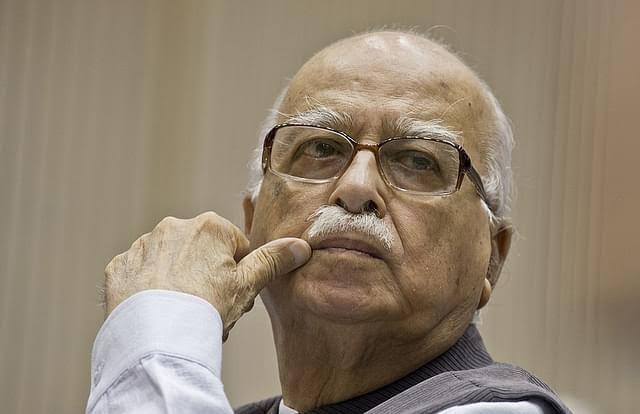
On November 8, 1927, LK Advani was born in Karachi, Pakistan today. Notably, he has presided over the Bharatiya Janata Party (BJP) for the longest period of time since the party's establishment in 1980. He joined Rashtriya Swayamsevak Sangh (RSS) and took on leadership roles in Rajasthan in 1947. When Syama Prasad Mookerjee founded the Bharatiya Jana Sangh (BJS) in 1951, Advani was the secretary of the Rajasthan unit of the party until 1970, when he moved to the Delhi unit. With a parliamentary career spanning nearly three decades, he held significant roles including Home Minister and Deputy Prime Minister in the cabinet of Shri Atal Bihari Vajpayee (1999-2004).
©️ Copyright 2024. All Rights Reserved Powered by Vygr Media.

